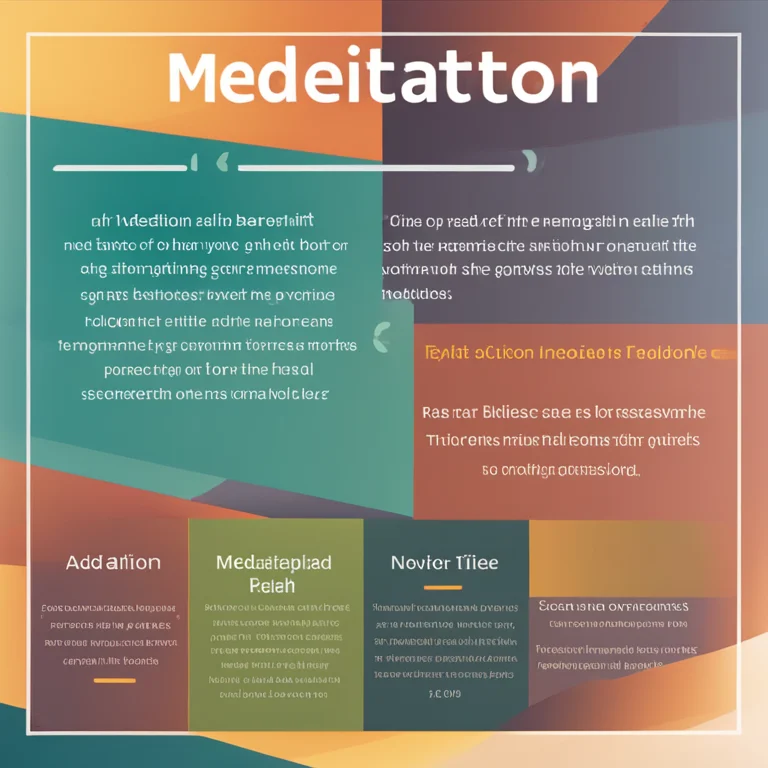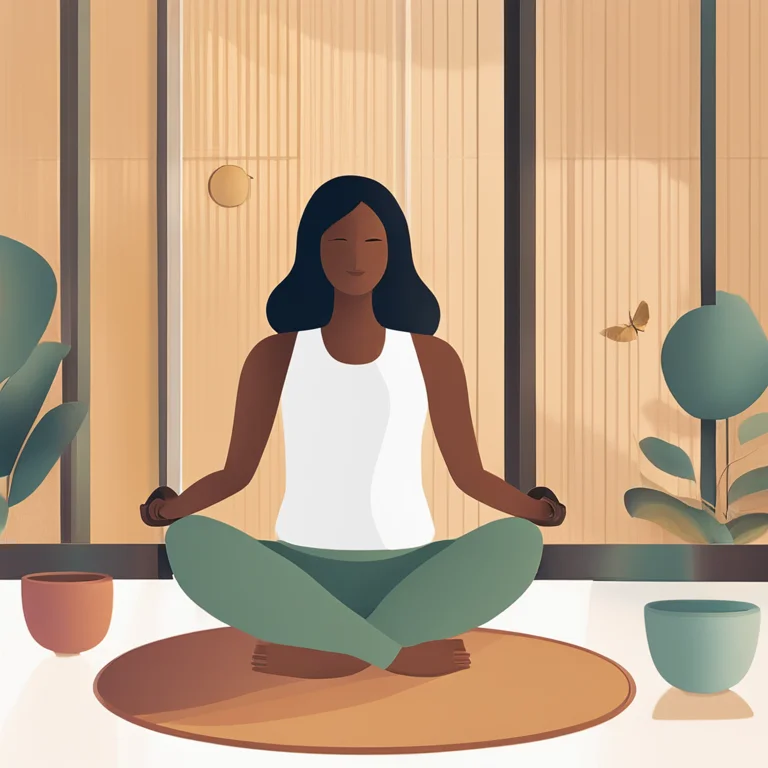
Meditation as a Solace for Depression
Discover how meditation can become a therapeutic refuge for dealing with depression, with a focus on modern, mindful techniques adapted for contemporary challenges.
article by Hina Kurosawa
Introduction to Meditation and Mental Health
Mental health is becoming a focal point of modern wellness, and meditation has emerged as a cornerstone practice for fostering mental equilibrium. In the current landscape of psychological therapies, meditation is not a fringe activity but a scientifically-backed approach recommended by healthcare professionals globally. The process involves training the mind to focus and redirect thoughts, which can be exceptionally beneficial for those managing depression. This article sheds light on the role of meditation in combating depressive symptoms and enhancing overall emotional health.

Meditation Techniques to Combat Depression
Meditation is not a one-size-fits-all remedy; it encompasses a variety of techniques suitable for different personalities and lifestyles. Mindfulness Meditation encourages present-moment awareness, which helps in acknowledging but not engaging with depressive thoughts. Loving-kindness Meditation focuses on generating feelings of compassion towards oneself and others, combating the negative self-talk commonly found in depression. With advances in technology, guided meditation apps and virtual reality meditation programs have also become accessible, offering immersive experiences for individuals seeking structured support.

The Science Behind Meditation's Effectiveness
Recent studies continue to unravel the benefits of meditation on the brain's structure and function. Neuroscientists have discovered that consistent meditation can lead to increased grey matter in the prefrontal cortex, enhancing decision-making, emotional regulation, and resilience to stress factors. Furthermore, meditation has been observed to reduce activity in the amygdala, the brain’s 'fear center,' which is often overactive in those with depression. This scientific backing provides considerable validation for incorporating meditation into a holistic treatment plan for depression.

Incorporating Meditation into Everyday Life
Integrating meditation into one's daily routine does not require drastic life changes. Starting with just a few minutes a day, individuals can practice meditation in various settings—at home, during a work break, or even in nature. With time, these short sessions can naturally extend as the practitioner finds solace and clarity in the practice. It's essential to create a regular schedule and quiet environment for meditation to foster a sense of routine and normalcy, which is particularly calming for those dealing with depression.

Overcoming Challenges in Meditation
While meditation is beneficial, starting a practice amidst the throes of depression can be challenging. It's common to encounter resistance, intruding thoughts, or a sense of discomfort. However, these hurdles provide crucial opportunities for learning and growth. Mental training, like any skill, requires patience and perseverance. Supportive communities, either in-person or online, can provide motivation and advice for those new to meditation. The key is to continue practicing without self-judgment, embracing the learning curve.
Meditation in Conjunction with Other Treatments
Meditation is a complementary treatment and should be part of a comprehensive approach to managing depression. It can enhance the effects of traditional therapies, such as cognitive-behavioral therapy (CBT) or medication, if recommended by a healthcare provider. A multidisciplinary approach to depression often yields the best results, with meditation adding a self-empowering aspect to the journey toward mental wellness.
Published: 1/9/2024
Modified: 1/9/2024
More predictions
Come back here soon to learn more about yourself and your future


The Harmony of Meditation & Sleep
Discover how meditation enhances sleep quality and overall well-being through mindful practices and relaxation techniques.


Retreat into Serenity: A Meditation Haven
Discover the transformative power of a meditation retreat and find tranquility for mind, body, and spirit in our comprehensive guide.


The Tranquil Bridge: Meditation's Impact on Sleep Quality
Discover how meditation can enhance sleep quality, weaving a path to better rest and well-being